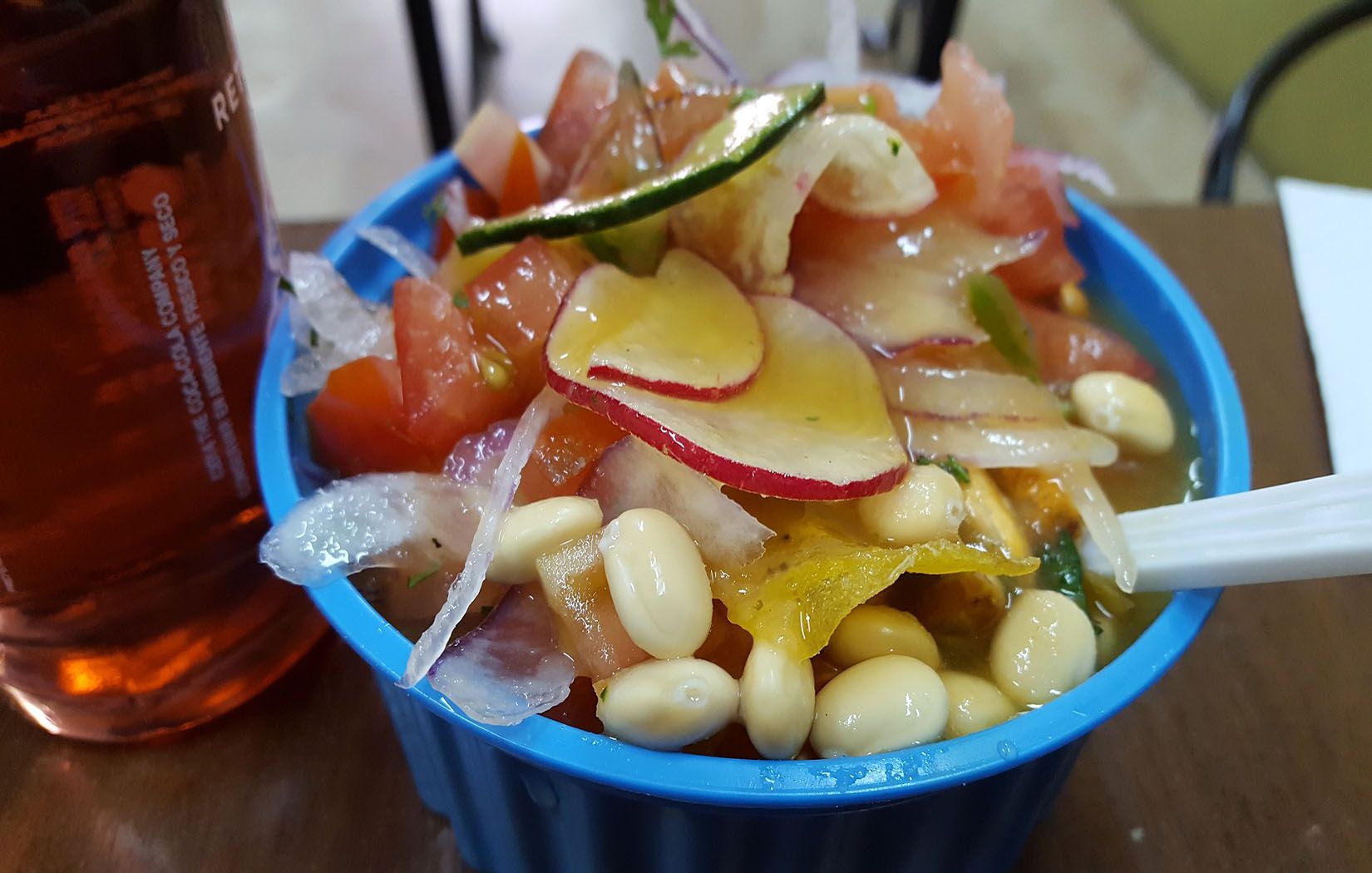The best way to get an authentic taste for a city’s local cuisine is by eating its street food. And Quito has a diverse street food scene. The Mercado Central is a hot spot but you’ll find it in plazas all over the city. Ecuadorians like to eat all hours of the day and most of them eat on the go so you’ll see street vendors selling soups, fried snacks and other tasty delights throughout the day and night which means you’ll never go hungry. Unfortunately the quality of food varies so look for the stalls and hole-in-the-wall establishments with the longest lines and you’re likely to find something delicious at the end of it. Here’s our guide to the best street food in Quito:
Empanadas
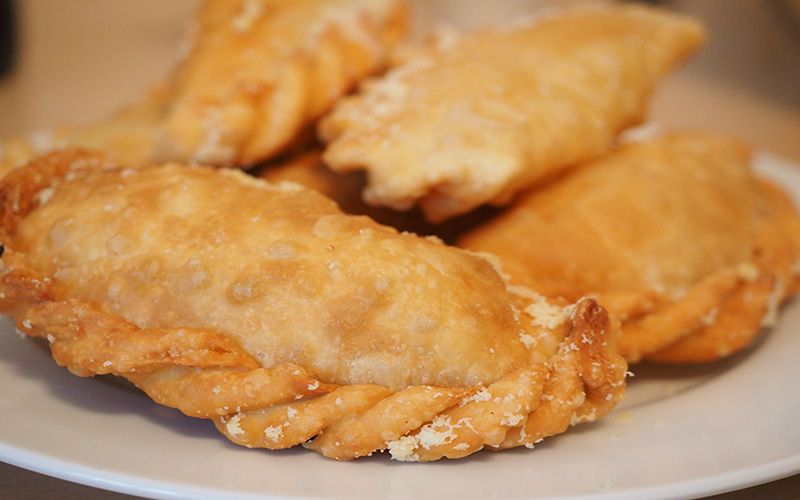
Every country in South America has its own version of the empanada and when in Quito, be sure to try the empanadas de viento that are fluffy, fried cheese empanadas covered with a light dusting of sugar, and the empanadas de verde, stuffed with plantain. Other popular Ecuadorean empanadas are empanadas de morocho, made with thin corn dough and stuffed with a meat or cheese filling.
Fritada
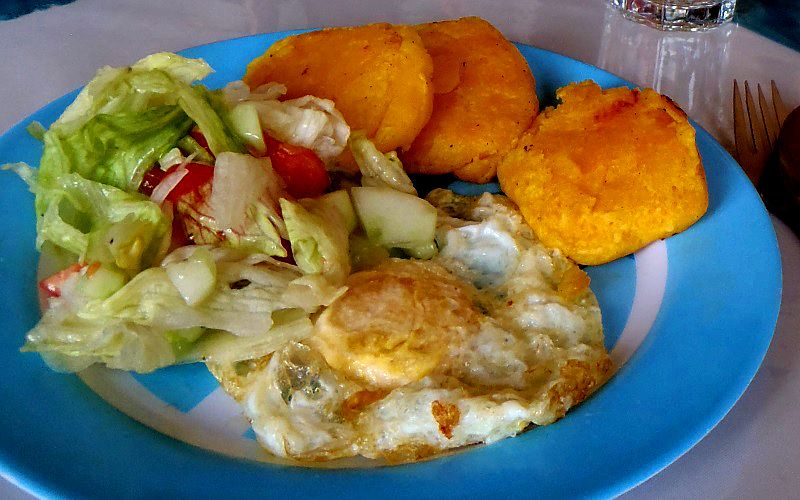
This is one of Ecuador’s finest and most traditional local dishes. It consists of spiced pork that’s first boiled then fried in its own fat. It’s often served with llapingachos (fried potato cakes). It makes for a rather unhealthy but very satisfying lunch.
Quimbolitos/Humitas
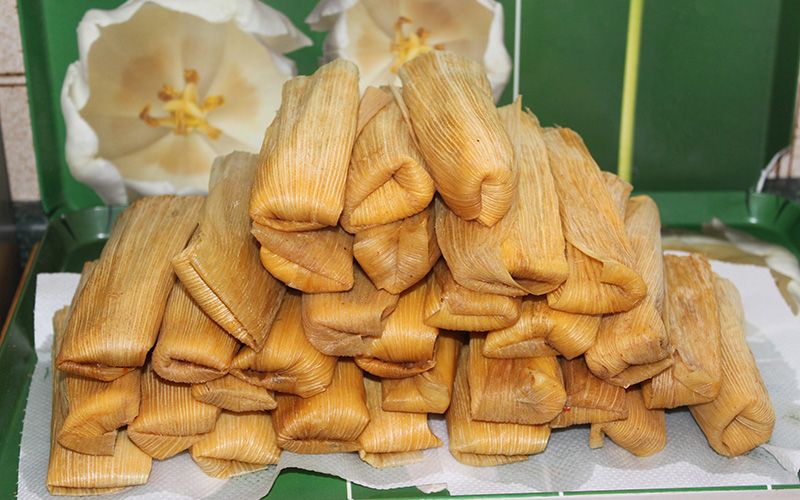
Quimbolitos are Ecuador’s answer to steamed cornbread, only a sweeter, less dry version topped with raisins and wrapped in an Achira leaf. If you prefer something more savory, try the humita instead that resembles a tamale. It’s made from a mix of corn, onion, egg and sometimes cheese and is wrapped in corn leaves.
Chochos, chifles, y tostadas
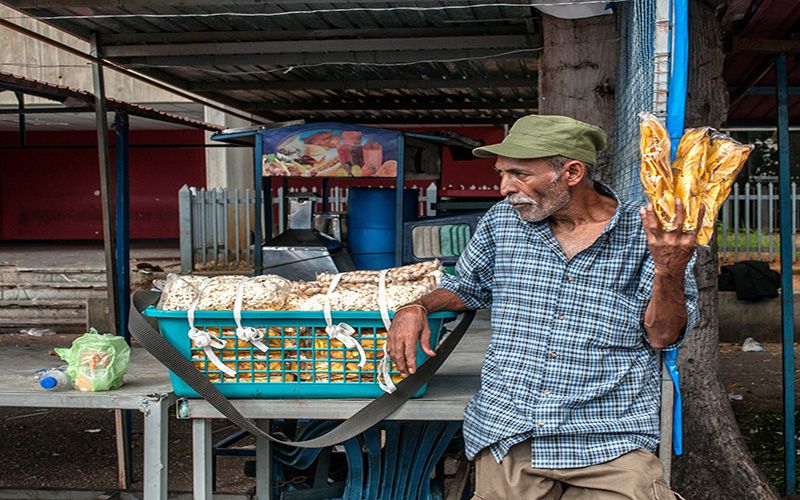
Beware, you’ll find chochos (fried beans), chifles (fried plantain chips), and tostadas (fried corn) all over town and they’re highly addictive snacks that are great dipped in salsa. You won’t be able to stop.
Bolónes
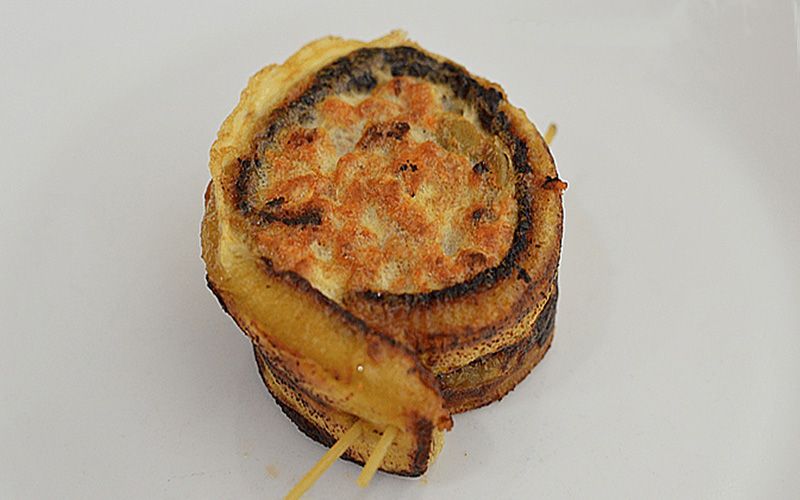
Anything fried is usually delicious and these big fried balls are no exception. Bolónes are usually eaten for breakfast and they’re made from mashed plantain and mixed with either cheese or meat. You can eat them on their own but they taste better with a dash of hot sauce.
Pan de yuca
These salty, cheesy rolls are a great hangover cure. They’re made with starch from the cassava plant (native to South America and a popular source of carbs), cheese, eggs and salt. Don’t expect it to taste like the bread you’re used to, pan de yuca has a more distinctive taste and texture and is often sold with a fruity yogurt (which it goes surprisingly well with).
Jugo de maracuya (passionfruit)
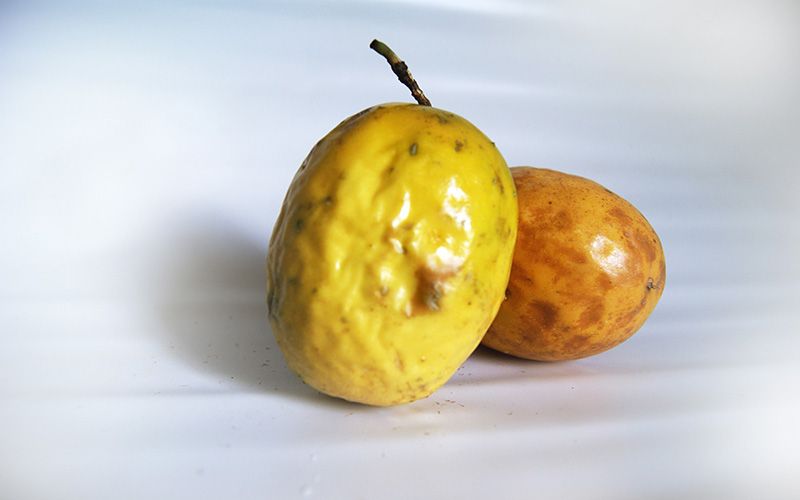
Maracuya (passion fruit) is everywhere in Ecuador so be sure to get your fill of this tangy, sweet fruit during your time in Quito. A refreshing maracuya juice always goes down a treat, particularly on a hot summer’s day, and you’ll find fruit juice stands on virtually every corner.
Patacones
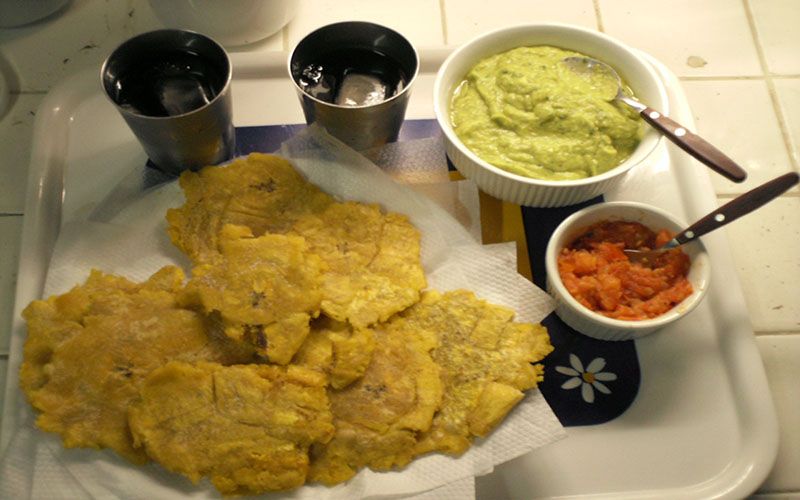
Plantain is a key ingredient in many Ecuadorean dishes but there’s something deliciously simple about patacones, which are thin, flattened slices of plantain, seasoned with salt and fried in oil to perfection. Much like many of Quito’s snacks, they are eaten best with some salsa de ají (hot sauce) or salsa rosada (a combination of mayo and ketchup).
Green mango with salt
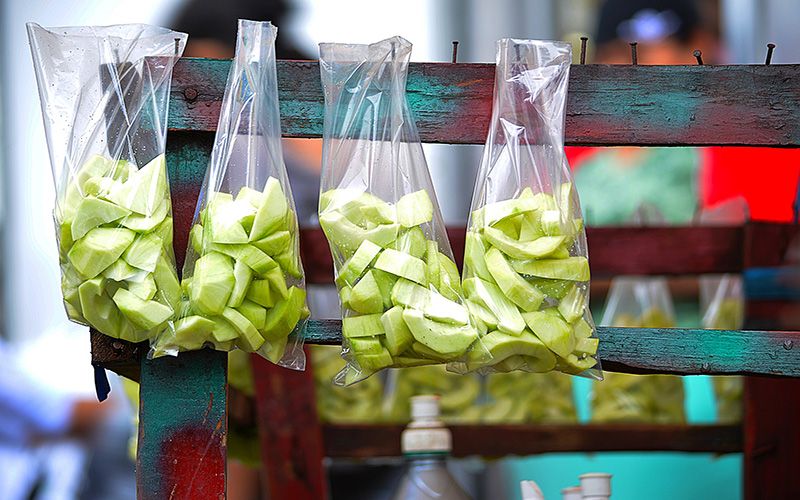
If you like sour candy then you’ll love mangos con sal. For this particular snack, the greener (and less ripe) the mangos the better, making for a more sour flavor. They’re topped with a sprinkling of salt and a splash of lime juice. If you like those, you might also want to try grosellas (think acidic gooseberries) con sal or any other sour, green fruit doused in salt.
Mote con chicharrón
This is a yummy mix of corn and hominy topped with shredded chicharrón (pork) and salsa that you’ll see the locals eating a lot of. It’s very hearty and filling and always served in a big bowl filled to the brim.
Salchipapas
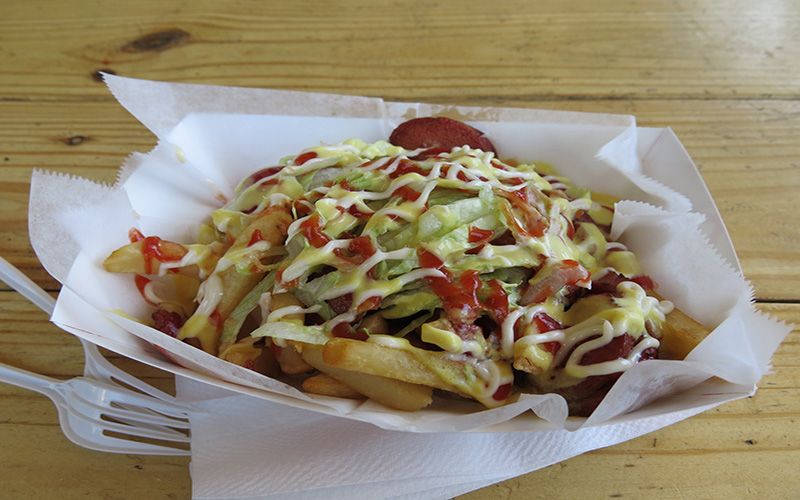
Salchipapas are the snack of choice for a lot of Ecuadoreans. As you’ve probably guessed by the name, it’s a combination of salchichas plus papas. In other words, they are French fries topped with bite-size slices of hot dog. You can then cover them in your choice of salsa rosada, tomato and onion curtido salsa, or a spicy salsa de ají.
Locro de papa
Eating soup on the street is common in Quito. You’ll see numerous vendors in the markets stirring big vats of steaming, hot soup and selling it by the cup to lines of locals. The king of soups is the locro de papa, made with milk, cheese, onion, achiote, cumin, garlic and chunks of potato. More adventurous foodies should also keep an eye out for the calso de manguera (a soup made with pork intestines, stuffed with blood and rice).
Espumilla
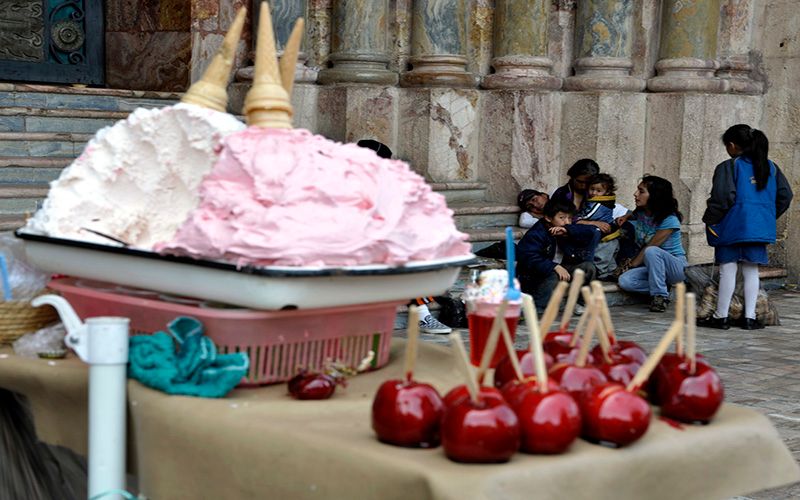
Ice cream lovers will go wild over the local espumilla. It looks like ice cream but it’s actually freshly whipped meringue cream flavored with a fruit extract such as maracuya or guava. Much like ice cream, it comes in cups or cones but it doesn’t melt, which makes it a much more appealing option on a hot, sunny day.
Happy snacking! And if you’ve tried any other great street food in Quito that we haven’t included in this list, tell our readers about it in the comments below.
Originally published on Ailola by Sophie Lloyd on October 9, 2017.
